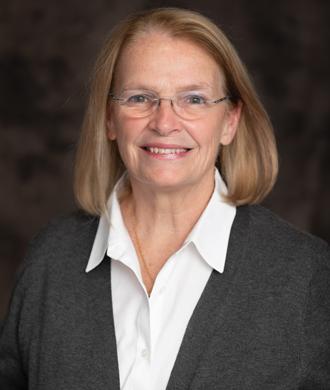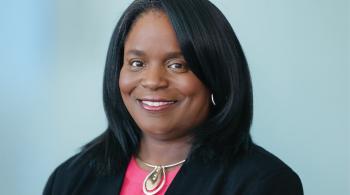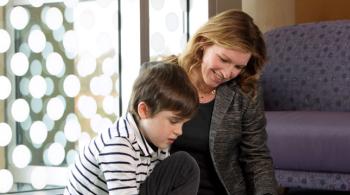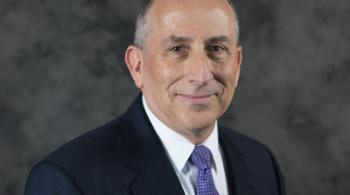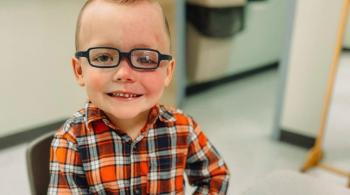On this episode of Your Childs Brain we discuss early child development with Dr. Mary Leppert, Dr. Joanna Burton, Dr. Gwendolyn Gerner.
Learn More About Our Featured Speakers
Learn More About Our Featured Speakers

Gwendolyn
Gerner
,
PsyD
View Episode Transcription
Mary Leppert (ML): Hello, and welcome to Your Child's Brain, a podcast series produced by the Kennedy Krieger Institute with the assistance of WYPR. I'm Mary Leppert, a neurodevelopmental pediatrician at Kennedy Krieger and I'm joined by two of my favorite colleagues, Dr. Joanna Burton, a neurodevelopmental pediatrician, and Dr. Gwendolyn Gerner, a neuropsychologist and the co-directors of the Infant Neurodevelopment Center. We're here to talk today about Infant and Early Brain Development in young children. Joanna, Gwen, good morning. How do parents figure out whether this is just a variability in development or if this is something that they need to be concerned about?
Joanna Burton (JB): I think it's a great question, Mary, especially for first-time parents. Paying attention to what your child's doing in comparison to what other children are doing, that you might see. Listening to what your own parents have to say about what your child is doing, and what other friends might say, and certainly everything that's available in social media can make watching your child develop be a little bit anxiety-provoking. I think it's important to recognize just what you said, that there is variability in how kids learn things. During this really early period of time, so many things are going on together, and it's an exciting time that really we want parents to be able to enjoy with their children. But noticing when things are different than you might expect or looking at milestones that you've noticed on websites, and if you start to think that this might not be progressing the way it's supposed to, the first step is really the primary care doctor and asking the primary care doctor if they're meeting milestones or any concern that you might have. There are a lot of other places to get support. There can be early intervention in Maryland, that's called the Infants and Toddlers Program, which is a free state program, and there were certainly specialty clinics like ours, where we see kids who have identified risk or because the primary care provider or the parents had a concern that they wanted evaluated.
ML: I wonder, Gwen, if you could talk about what happens when a child is referred to Infants and Toddlers program or to a specialty clinic so parents know what to expect.
Gwendolyn Gerner (GG): It's a great question, Mary, and I think a lot of times it seems like a really overwhelming system and how parents and kids get to this place of Infants and Toddlers or Birth to Five Services. For some children, certainly ones in the NICU who have really specific identified risks they may be extremely preterm, they may have had some loss of oxygen at birth, or something along those lines. Those are what are called automatic qualifying conditions. Children automatically are referred usually by their medical team, the social worker in the NICU out into the Infants and Toddlers services so that when baby comes home, they will contact the parents, reach out to them and schedule a time to come out and evaluate the child and see what services they do need. The services offered are things like physical therapy, occupational therapy. It could be focused on feeding, it could be focused on just general movements and exercises. But there's also an educator that can come out who helps parents learn different play strategies with their child that are important for learning, as well as vision therapists and hearing therapists if that's needed as well. That's how our high-risk kids get to Infants and Toddlers. But what if delays present later, and your aren't a child referred right out of the hospital to go to Infants and Toddlers? In that case, parents can certainly reach out to the Infants and Toddlers program in their particular county in Maryland. The websites for that, if you just Google Infants and Toddlers or Birth to Five Services will provide you with that information to call and reach out to those programs, to schedule an evaluation and somebody will come out and do an evaluation and help determine if there are delays and if those delays are enough to qualify for those early services.
ML: Know about them. Because I think that recognizing risk right in the nursery is, in some way, an advantage because you're being watched closely. But for other children, it's really later, when parents recognize, as Joanna said, that their children aren't quite doing what the neighbors and the older siblings, or the cousins are doing at the same age. But there are other ways I think that these concerns can come up. In the State of Maryland, childcare providers are also doing screening and certainly pediatricians are doing screening that's recommended at well-child checks. Joanna, if you could talk a little bit about how you come to considering diagnoses or reassuring parents. What goes into that evaluation?
JB: I think, Mary, that's also a really good point is that traditionally there was a lot of watch and wait when we followed really early kids because we do know that development can vary. Not all kids roll at exactly the same time, not all kids sit at exactly the same time, walk or had their first words. But there's really a pretty specific developmental progression that they go through. It used to be that parents were told, just watch and wait, let's see what happens. This is an opportunity for early intervention like Gwen was talking about, but it also increases anxiety when that parent is still feeling like something's not quite right. Really the shift has been to have evaluations if it really is a normal variation.
ML: But what does the evaluation look like?
JB: In the birth to three area, our job is really trying to predict the future. Which no one is great at, but we're getting better and better about finding markers that can tell us more about how someone is going to develop. If someone came to a specialty clinic with us or a different high-risk clinic, you would probably see multiple providers. But they will do a very detailed exam, taking a really good history, looking for any of those risks that Gwen talked about. A very detailed neurologic exam which looks at how the body parts are moving. Are they doing the same things on both sides? What does the resting state of muscles look like? Lots of detail about how the body is interpreting the signals the brain sends, and then a developmental assessment. That assessment is going to look at class developmental areas. Looking at the big muscle movements or gross motor development, looking at fine motor movements. How do our hands work? Looking at thinking skills, early cognitive skills, and then also looking at early language skills. How do we understand what's said to us and how do we communicate our needs? In addition, a provider's going to look at behaviors because frequently behaviors tell us about what's happening in a child's brain as well. All of those pieces together can help us figure out how a child is currently doing and how we might think they're doing in the future.
ML: Gwen, tell me, once we identify a child that we've identified some concerns, what's our job then and how do we help the children and the families after we've identified their problem?
GG: The identification of the problem is a really scary thing for parents. Certainly, I've been the parent of two special needs kids out of my three, and hearing that your child has a diagnosis or a problem is really anxiety producing. But then our goal from there is to help reduce the parent anxiety and provide some good strategies for how we develop a plan to move forward to help scaffold and support that child in developing the skills they need. They may develop them in a different way. We may have to teach them in a different way. Sometimes parents may feel like those skills emerge so naturally for other kids and they're not emerging naturally from mine and I have to walk them through every little step. That may be true, but our job is to help break down every little step so that you can be there with your child and really play with them in a way that supports their development. That's the trick. It's like Mary Poppins said, is a spoonful of sugar makes the medicine go down. If we can disguise it in play and it's fun for you and for your child, then it's something that really really works because not only are we getting children through the necessary milestones and helping support them to be their best selves, but we're also fostering that relationship between a family, so that it doesn't feel so stressful and it doesn't feel so anxiety producing and you really have those opportunities for bonding.
ML: It sounds like we can benefit the family in lots of ways if we're doing this in a way that we're thinking about the whole family as we're making our plans for them. Joanna, how do you monitor the success of the interventions or whether they need to be changed or whether we have to change the goals of the interventions that we're doing?
JB: It's really multiple steps and involves a lot of communication with parents in how they think what's going on as well. Clearly we reassess. We use some of those same tools to see how development is moving forward. But we also need to talk to families about what they're feeling. Sometimes like Gwen is talking about, that work can be really effortful and so the child may be making gains, but it might be at the expense of some of those other things that are important for babies development. Which is that bonding or the play-based learning that they need to do as well. Figuring out if the interventions are moving us forward in development, but also how the family and the children are responding to those as well. Not every program is exactly the right fit and so we have to find that in the community and within the family as well.
ML: It's a glorious time for parents, but it's also a very frightening time, I think. To know, I think that there's somewhere to go when you have worries, is a wonderful thing. I think the most important thing is to know where you should go if you're worried about your child's development, and the best starting place is with your pediatrician. Do you agree?
JB: Yes, absolutely. [MUSIC]
ML: You’ve been listening to Your Child's Brain. Your Child's Brain is produced by Kennedy Krieger Institute with the assistance of WYPR and producer Spencer Bryan. Please join us next time as we examine mysteries of your child's brain.

